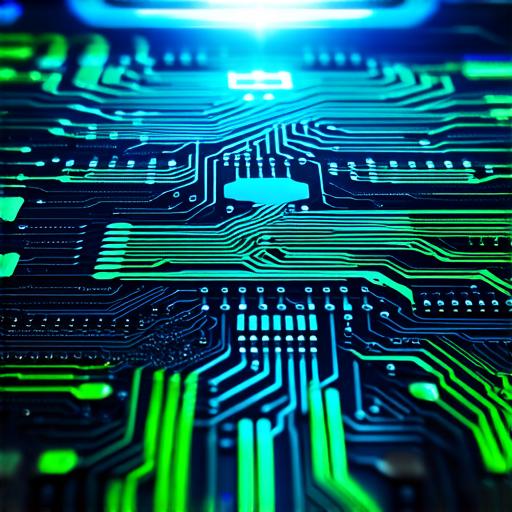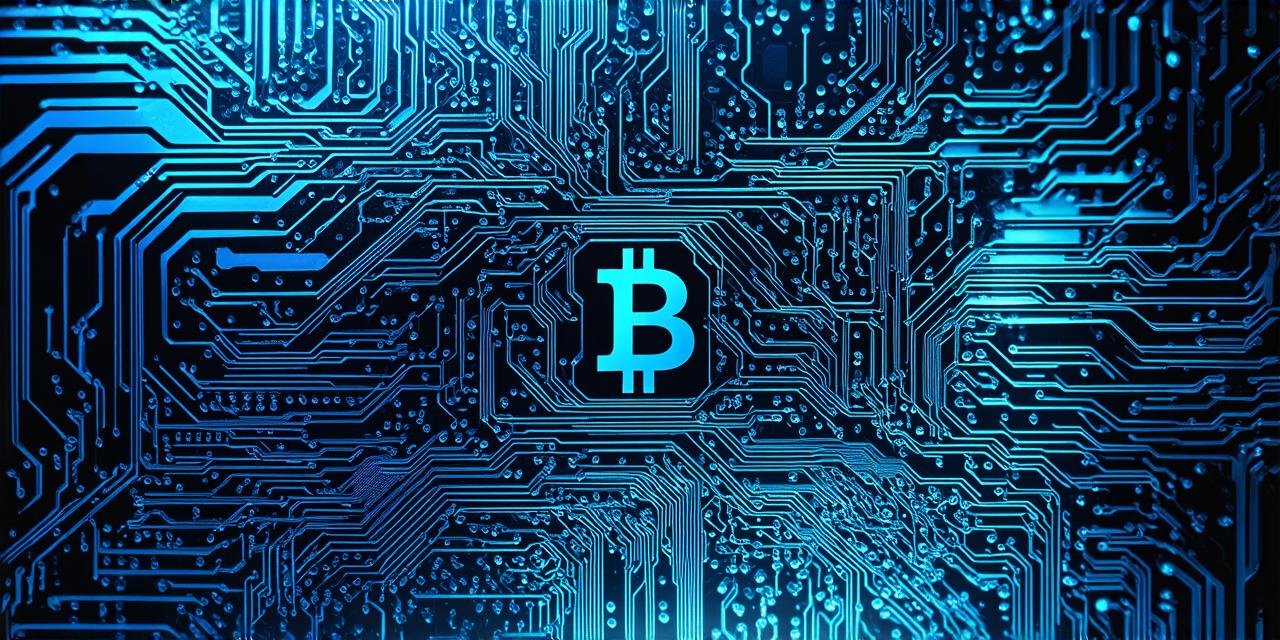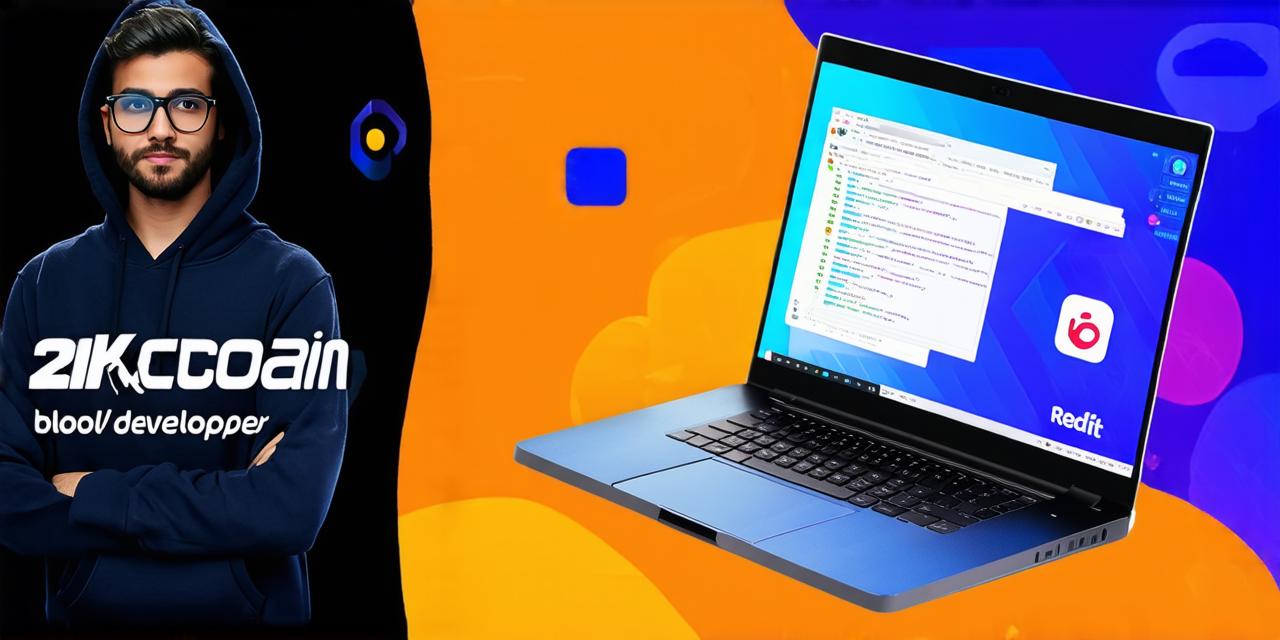Blockchain technology is an innovative and revolutionary concept that has taken the world by storm. It’s a decentralized, secure, and transparent digital ledger that records transactions across a network of computers. Over the years, blockchain has been used for various purposes, including cryptocurrencies like Bitcoin and Ethereum, supply chain management, and voting systems. In this comprehensive guide, we will explore the power of blockchain technology, its uses and applications, and how it can transform different industries.
1. What is Blockchain?
Blockchain is a digital ledger that records transactions in a secure and transparent manner. It was first introduced with the creation of Bitcoin, a decentralized cryptocurrency that operates on a blockchain network. The core idea behind blockchain technology is to provide a decentralized system where everyone has access to the same information, eliminating the need for intermediaries like banks or governments.
2. Blockchain vs. Traditional Databases
Blockchain differs from traditional databases in several ways. Firstly, it’s decentralized, meaning that it doesn’t rely on a central authority or server to function. Instead, transactions are recorded across a network of computers, making it more secure and resistant to hacking. Secondly, blockchain is transparent, meaning that all participants have access to the same information. This makes it easier to audit and verify transactions, reducing fraud and increasing trust. Thirdly, blockchain is immutable, meaning that once data is recorded on the blockchain, it cannot be altered or deleted. This creates a tamper-proof record of all transactions.
3. Blockchain Uses and Applications
Blockchain technology has numerous uses and applications across different industries, including finance, healthcare, supply chain management, and more. Here are some examples:
-
Cryptocurrencies
-
Supply Chain Management
-
Healthcare
-
Voting Systems
a. Cryptocurrencies
As mentioned earlier, blockchain is the underlying technology behind cryptocurrencies like Bitcoin and Ethereum. These digital currencies operate on a decentralized network, allowing for secure and transparent transactions without the need for intermediaries.
b. Supply Chain Management
Blockchain technology can revolutionize supply chain management by providing a transparent and secure record of the entire supply chain process. This includes tracking products from production to delivery, verifying their authenticity, and ensuring compliance with regulations. By using blockchain, companies can reduce fraud, improve efficiency, and increase transparency in their supply chains.
c. Healthcare
Blockchain technology can be used in healthcare to securely store and share patient data, track medical records, and manage clinical trials. By using blockchain, healthcare providers can ensure the privacy and security of patient data while also improving interoperability between different systems. This can lead to better patient outcomes and more efficient healthcare delivery.
d. Voting Systems
Blockchain technology can be used to create secure and transparent voting systems that are resistant to tampering and hacking. By using blockchain, voters can cast their ballots with confidence, knowing that their vote will be counted accurately and securely. Blockchain can also help to reduce the time and cost of elections, making it more accessible to everyone.
4. The Future of Blockchain
The future of blockchain technology is bright, with numerous potential applications across different industries. As the technology continues to evolve, we can expect to see even more innovative uses and applications emerge. Here are some potential future developments:
-
Smart Contracts
-
Decentralized Applications (DApps)
-
Blockchain-Based Identity Verification
a. Smart Contracts

Smart contracts are self-executing agreements that operate on a blockchain network. They can be used to automate complex business processes, such as supply chain management, real estate transactions, and more. By using smart contracts, companies can reduce the need for intermediaries, save time and money, and improve efficiency.
b. Decentralized Applications (DApps)
Decentralized applications (DApps) are applications that run on a blockchain network and don’t rely on a central authority to function. They can be used for a variety of purposes, including social media, gaming, and more. By using DApps, users can have more control over their data and transactions, reducing the need for intermediaries like governments or corporations.
c. Blockchain-Based Identity Verification
Blockchain technology can be used to create secure and transparent identity verification systems that are resistant to tampering and hacking. By using blockchain, individuals can have more control over their personal data, reducing the risk of identity theft and fraud. This can also help to improve access to services and opportunities for underbanked and unbanked populations.
5. Conclusion
In conclusion, blockchain technology is a powerful concept that has numerous uses and applications across different industries. From cryptocurrencies to supply chain management and healthcare, blockchain technology can transform the way we work and interact with each other. As the technology continues to evolve, we can expect to see even more innovative uses and applications emerge. By embracing blockchain technology, businesses and individuals can unlock new opportunities and improve efficiency, security, and transparency in their operations.
FAQs:
Q: What is blockchain?
A: Blockchain is a decentralized, secure, and transparent digital ledger that records transactions across a network of computers. It was first introduced with the creation of Bitcoin, a decentralized cryptocurrency that operates on a blockchain network.
Q: How does blockchain differ from traditional databases?
A: Blockchain is decentralized, meaning that it doesn’t rely on a central authority or server to function. It’s transparent, meaning that all participants have access to the same information. And it’s immutable, meaning that once data is recorded on the blockchain, it cannot be altered or deleted.
Q: What are some examples of blockchain uses and applications?
A: Blockchain technology has numerous uses and applications across different industries, including cryptocurrencies, supply chain management, healthcare, voting systems, and more.
Q: What are some potential future developments for blockchain technology?
A: Some potential future developments for blockchain technology include smart contracts, decentralized applications (DApps), and blockchain-based identity verification systems.



